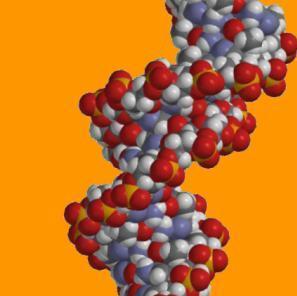Difference between revisions of "Genetic diversity"
Dronkers J (talk | contribs) |
Dronkers J (talk | contribs) |
||
| Line 1: | Line 1: | ||
| − | |||
| − | [[Image:genetic.jpg|right | + | [[Image:genetic.jpg|right|frame]] |
| − | + | Genetic diversity is the variation in the genetic composition among individuals of a [[population]], a [[species]], an assemblage, or a community. Diversity on a genetic level is a reflection of the similarities and differences in the genes (segments of DNA on chromosomes) of individuals. These variations can evolve as a result of many different processes, such as mutation, and physical or behavioral isolation of populations. | |
Although genetic diversity is not always obvious, it is extremely important as it is a requisite for [[evolution]]ary adaptation to a changing environment. The greater the variation among individuals within a species, the greater the likelihood that some will be able to adapt to different environmental conditions and that the species will survive major changes in their surroundings, such as global warming. | Although genetic diversity is not always obvious, it is extremely important as it is a requisite for [[evolution]]ary adaptation to a changing environment. The greater the variation among individuals within a species, the greater the likelihood that some will be able to adapt to different environmental conditions and that the species will survive major changes in their surroundings, such as global warming. | ||
| + | |||
| + | Genetic diversity is one of four of the components of [[Marine Biodiversity]]; the three other components are [[Ecosystem diversity]], [[Species diversity]] and [[Functional diversity]] <ref name="Marbef">http://www.marbef.org</ref>. | ||
Revision as of 19:29, 31 August 2020
Genetic diversity is the variation in the genetic composition among individuals of a population, a species, an assemblage, or a community. Diversity on a genetic level is a reflection of the similarities and differences in the genes (segments of DNA on chromosomes) of individuals. These variations can evolve as a result of many different processes, such as mutation, and physical or behavioral isolation of populations.
Although genetic diversity is not always obvious, it is extremely important as it is a requisite for evolutionary adaptation to a changing environment. The greater the variation among individuals within a species, the greater the likelihood that some will be able to adapt to different environmental conditions and that the species will survive major changes in their surroundings, such as global warming.
Genetic diversity is one of four of the components of Marine Biodiversity; the three other components are Ecosystem diversity, Species diversity and Functional diversity [1].
References
Please note that others may also have edited the contents of this article.
|
